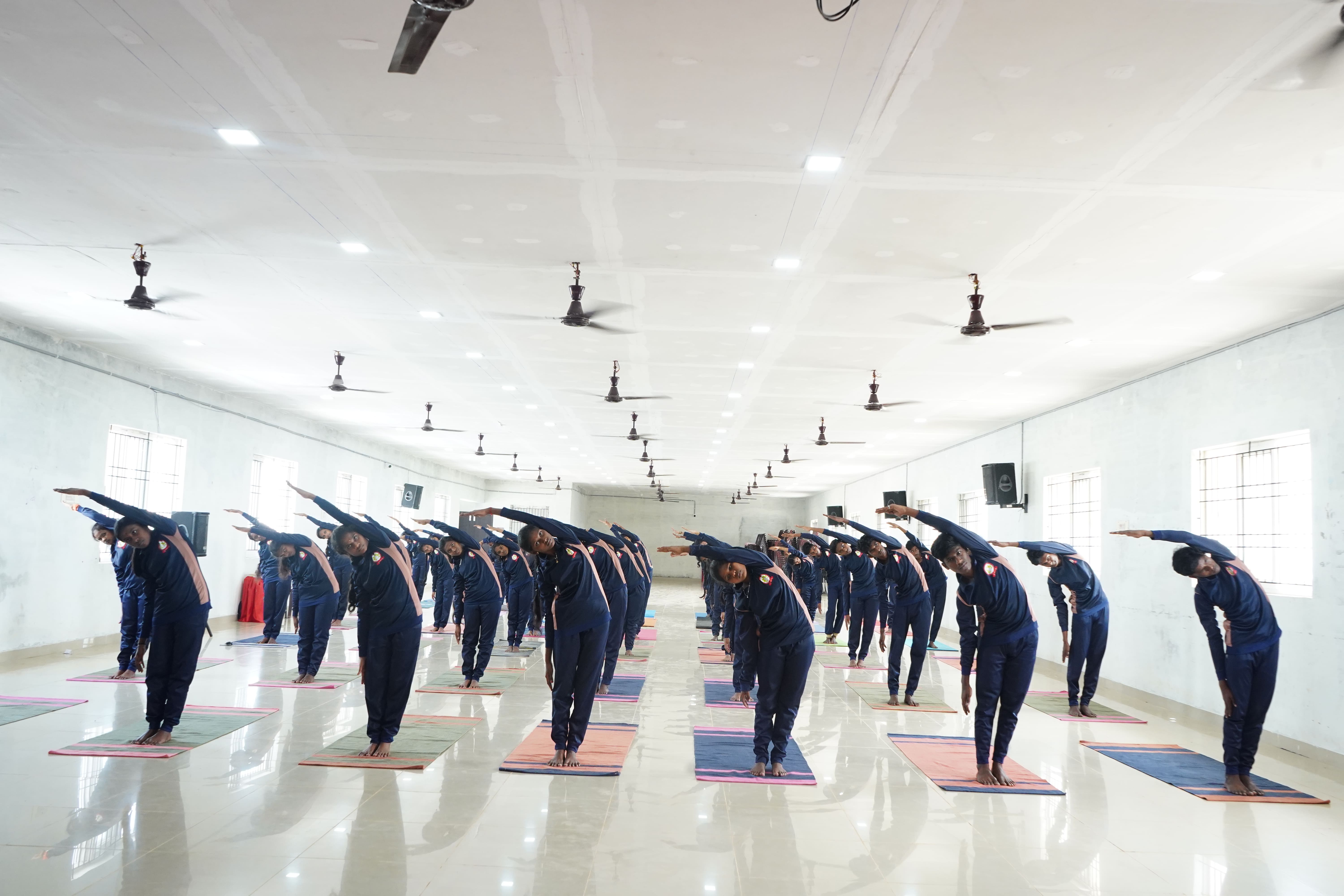Course Objectives
- To apply the understanding of physiological effects of yoga practices to treat various disease conditions.
- To make them practices of advanced techniques of Yoga therapy.
- To learn and experience the various relaxation techniques.
- To acquire the knowledge on therapeutic applications of different Yoga techniques to treat various diseases.
- Research on the effects of meditation and relaxation techniques.
- To learn the Mediation and therapeutic application of psychosomatic disorders.
- To understand the therapeutic benefits of sukshma vyayam, sthula vyayam and sakthi bandha series.
- To know the knowledge and role of exercise and its effects for manage the general diseases.
- To make the students application of therapeutic knowledge into various system of abnormal physiology.
- To learn about different relaxation techniques and its benefits.
- To understand the concept of yoga on mental health and therapeutic application of psychiatric condition.
.png)


